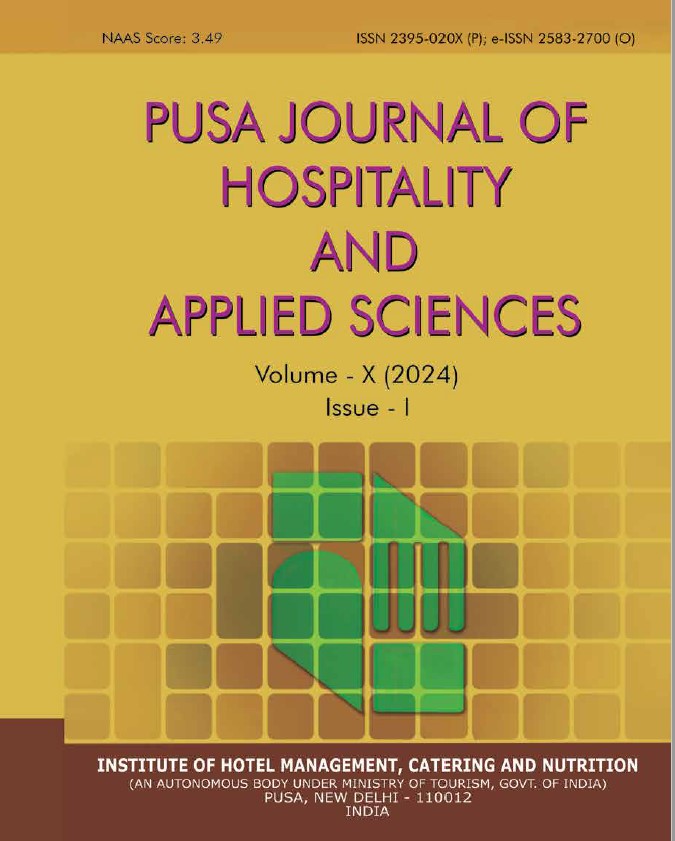Sustainable Wildlife Tourism With Specific Reference To Eco Friendly Resorts/Hotels -A Case Study Of Corbett National Park, Uttarakhand
Keywords:
Wildlife Tourism, Sustainable Tourism, Eco friendlinessAbstract
Background: This paper discusses the sustainable wildlife tourism with specific reference to resorts/hotels in and around Corbett National Park, Uttarakhand. Methods: This study is a part of detailed survey of the park and elaborates the eco-friendliness of these resorts/hotels. 69 (95.8%) resorts/hotels responded in the study. Results: It was observed that only 24.6% resorts/hotels have eco-friendly building, 27.5% have energy management system, 5.7% have water recycling, 14.4% use recycled materials, 37.6% train their staff for eco- friendliness and 27.5% resorts/ hotels have written guidelines for the guests.
References
Asia- Pacific Environment Innovation Strategies (APEIS) conducted research on Innovative and Strategic Policy Options (RISPO)- Good Practices Inventory
Curtin S, "Managing the wildlife tourism experience". The importance of tour leaders International Journal of Tourism, 12 (3):219.
Hunziker W and Kurt (1942). Hasso Spode. In Gunther Haehling (ed.): Tourism-Management, Berlin, 1998.
www.aiest.org/org/idt/idt_aiest .nsf/en/index.html.
www.ecoindia.com/sustainable-tourism.html
www.projecttiger.nic.in/corbett.html
www.timesonline.co.uk/tol/news/world/asia/article 7109878.ece
www.world-tourism.org




